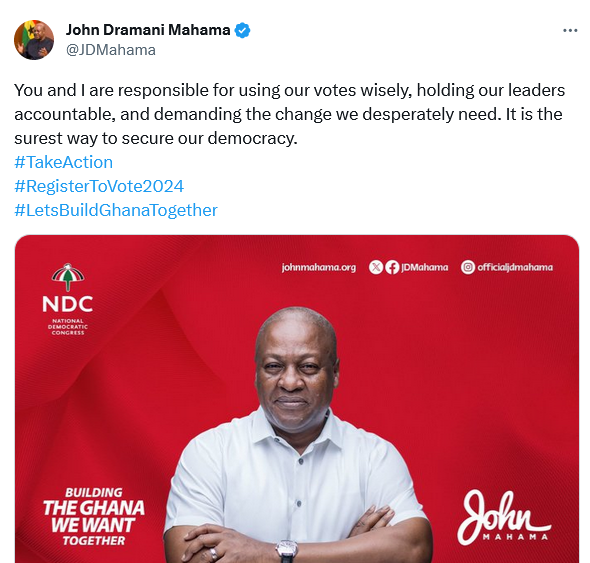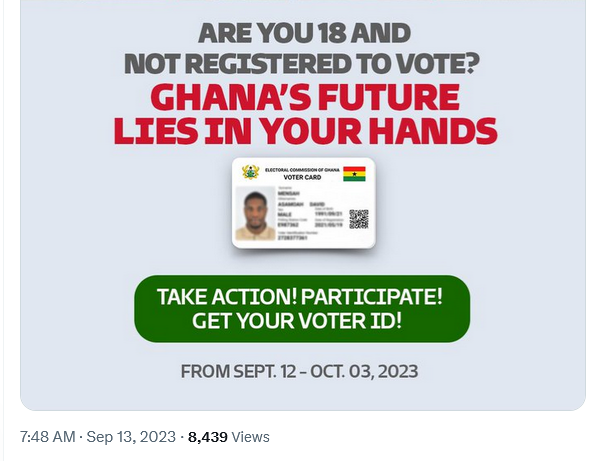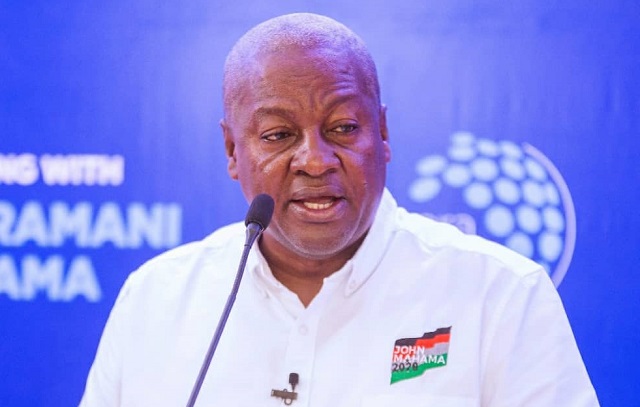John Dramani Mahama, former president, has urged Ghanaians who have just turned 18 and adults who haven’t yet registered to vote to make use of the ongoing Limited Voter Registration exercise.
The exercise, which started on September 12, is being conducted at each district office of the Electoral Commission (EC) across the nation.
Mahama emphasized that registering to vote with the Electoral Commission (EC) is the surest way to secure our democracy.
the NDC flagbearer also added that the voters ID card will help them hold the leaders accountable, and demand the change they desperately need.
In order to ensure their eligibility to cast a ballot in the upcoming elections in 2024, he urged all eligible citizens to actively participate in the registration process.


Despite the National Democratic Congress (NDC) and four other political parties requesting an injunction, the EC started the Limited Voters Registration Exercise on September 12. The 268 District Offices would host the registration, according to a statement from the Electoral Commission.
“The 2023 Voters Registration Exercise will commence on Tuesday, 12th September 2023, and conclude on Monday, 2nd October 2023. Individuals who have reached the age of 18 since the last registration exercise and those who, for various reasons, did not register in 2020, are encouraged to visit the District Office in their place of residence. To register, they will need to provide either their Ghana Card or Ghana Passport as identification. Eligible applicants who do not possess either of these identification documents are required to be vouched for by two (2) persons who are already registered voters to guarantee their registration,” the Electoral Commission stated.
Nevertheless, on September 7th, a lawsuit was submitted by five political parties, including the NDC, the Convention People’s Party (CPP), the All People’s Congress, the Liberal Party of Ghana, and the Great Consolidated Popular Party.
They contend that the EC’s choice to restrict the upcoming voter registration drive to its district offices could result in the disenfranchisement of many eligible voters, particularly those who live in remote areas.

